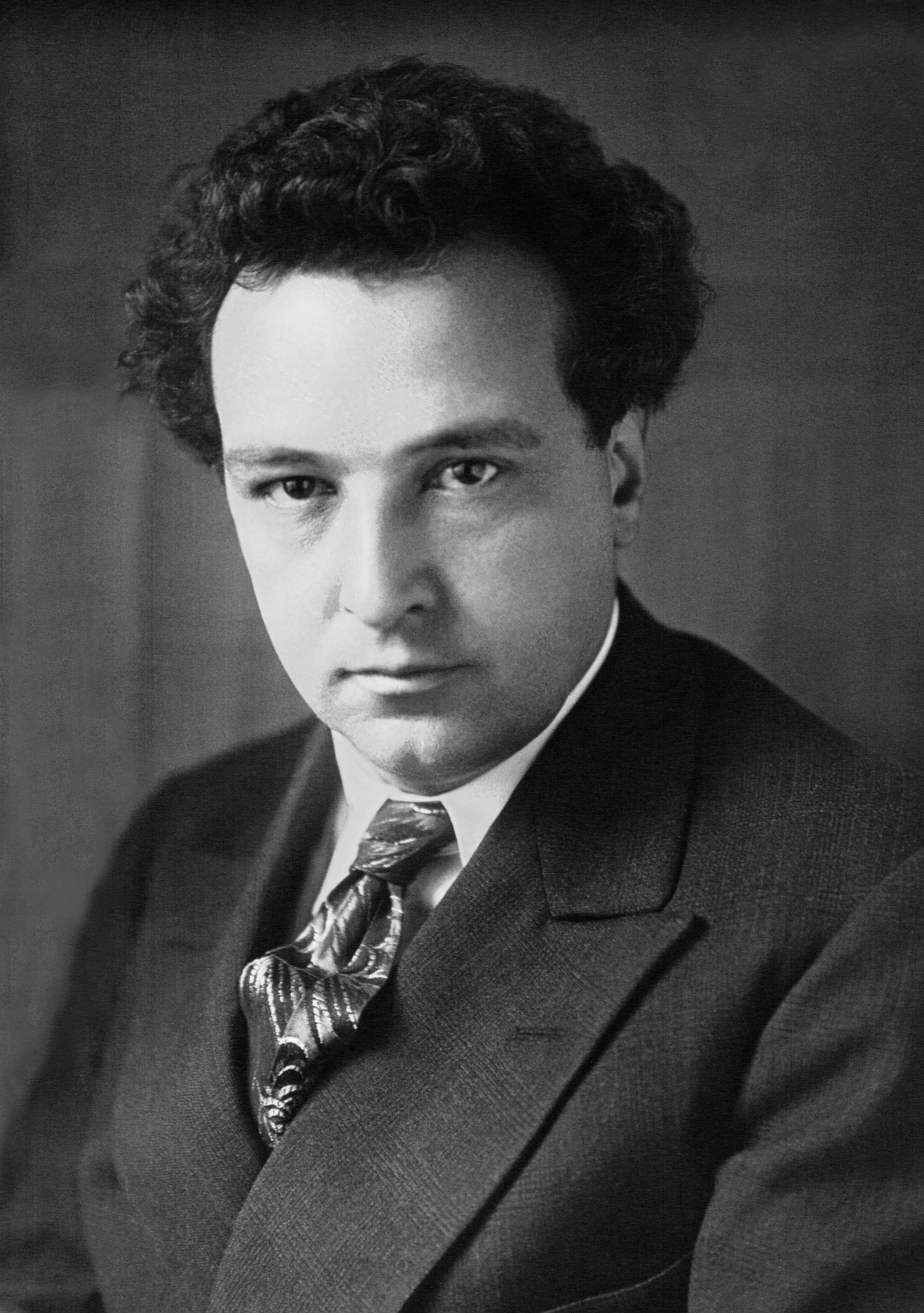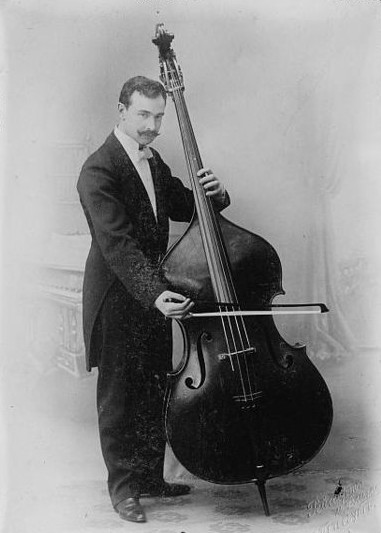|
Symphony No. 1 (Honegger)
The Symphony No. 1 by Swiss composer Arthur Honegger is a work for orchestra, written between December 1929 and May 1930 for the fiftieth anniversary of the Boston Symphony Orchestra. Its first performance was given in Boston on February 13, 1931, under Serge Koussevitzky. Honegger's First Symphony is a three-movement work with a total running time of about 22 minutes. The movements are titled: # Allegro marcato (approx. 5'40") # Adagio (approx. 9'00") # Presto - Andante tranquillo (approx. 7'10") This symphony is published by Éditions Salabert. Recordings Recordings of this symphony include full sets of Honegger's symphonies performed by * the Czech Philharmonic Orchestra under Sergei Baudo (Supraphon, 1994) * the Suisse Romande Orchestra under Fabio Luisi (Cascavelle, 2001) * the Toulouse Capitole Orchestra under Michel Plasson (EMI Classics, 2004) * the Bavarian Radio Symphony Orchestra The Bavarian Radio Symphony Orchestra (german: Symphonieorchester des Bayerische ... [...More Info...] [...Related Items...] OR: [Wikipedia] [Google] [Baidu] |
Arthur Honegger
Arthur Honegger (; 10 March 1892 – 27 November 1955) was a Swiss composer who was born in France and lived a large part of his life in Paris. A member of Les Six, his best known work is probably ''Antigone'', composed between 1924 and 1927 to the French libretto by Jean Cocteau based on the tragedy ''Antigone'' by Sophocles. It premiered on 28 December 1927 at the Théâtre Royal de la Monnaie with sets designed by Pablo Picasso and costumes by Coco Chanel. However, his most frequently performed work is probably the orchestral work ''Pacific 231'', which was inspired by the sound of a steam locomotive. Biography Born Oscar-Arthur Honegger (the first name was never used) to Swiss parents in Le Havre, France, he initially studied harmony with Robert-Charles Martin (to whom he dedicated his first published work and violin in Le Havre. After studying for two years at the Zurich Conservatory, he enrolled in the Paris Conservatoire from 1911 to 1918, studying with both Charl ... [...More Info...] [...Related Items...] OR: [Wikipedia] [Google] [Baidu] |
Boston Symphony Orchestra
The Boston Symphony Orchestra (BSO) is an American orchestra based in Boston, Massachusetts. It is the second-oldest of the five major American symphony orchestras commonly referred to as the " Big Five". Founded by Henry Lee Higginson in 1881, the BSO performs most of its concerts at Boston's Symphony Hall and in the summer performs at Tanglewood. Since its founding, the orchestra has had 17 music directors, including George Henschel, Serge Koussevitzky, Henri Rabaud, Pierre Monteux, Charles Munch, Erich Leinsdorf, William Steinberg and James Levine. Andris Nelsons is the current music director of the BSO. Seiji Ozawa has the title of BSO music director laureate. Bernard Haitink had held the title of principal guest conductor of the BSO from 1995 to 2004, then conductor emeritus until his death in 2021. The orchestra has made gramophone recordings since 1917 and has occasionally played on soundtrack recordings for films, including ''Schindler's List''. History Early year ... [...More Info...] [...Related Items...] OR: [Wikipedia] [Google] [Baidu] |
Boston
Boston (), officially the City of Boston, is the state capital and most populous city of the Commonwealth of Massachusetts, as well as the cultural and financial center of the New England region of the United States. It is the 24th- most populous city in the country. The city boundaries encompass an area of about and a population of 675,647 as of 2020. It is the seat of Suffolk County (although the county government was disbanded on July 1, 1999). The city is the economic and cultural anchor of a substantially larger metropolitan area known as Greater Boston, a metropolitan statistical area (MSA) home to a census-estimated 4.8 million people in 2016 and ranking as the tenth-largest MSA in the country. A broader combined statistical area (CSA), generally corresponding to the commuting area and including Providence, Rhode Island, is home to approximately 8.2 million people, making it the sixth most populous in the United States. Boston is one of the oldest ... [...More Info...] [...Related Items...] OR: [Wikipedia] [Google] [Baidu] |
Orchestra
An orchestra (; ) is a large instrumental ensemble typical of classical music, which combines instruments from different families. There are typically four main sections of instruments: * bowed string instruments, such as the violin, viola, cello, and double bass * woodwinds, such as the flute, oboe, clarinet, saxophone, and bassoon * Brass instruments, such as the horn, trumpet, trombone, cornet, and tuba * percussion instruments, such as the timpani, snare drum, bass drum, cymbals, triangle, tambourine, and mallet percussion instruments Other instruments such as the piano, harpsichord, and celesta may sometimes appear in a fifth keyboard section or may stand alone as soloist instruments, as may the concert harp and, for performances of some modern compositions, electronic instruments and guitars. A full-size Western orchestra may sometimes be called a or philharmonic orchestra (from Greek ''phil-'', "loving", and "harmony"). The actual number of musicians employ ... [...More Info...] [...Related Items...] OR: [Wikipedia] [Google] [Baidu] |
Serge Koussevitzky
Sergei Alexandrovich KoussevitzkyKoussevitzky's original Russian forename is usually transliterated into English as either "Sergei" or "Sergey"; however, he himself adopted the French spelling "Serge", using it in his signature. (SeThe Koussevitzky Music Foundations official web site Retrieved 5 November 2009.) His surname can be transliterated variously as "Koussevitzky", "Koussevitsky", "Kussevitzky", "Kusevitsky", or, into Polish, as "Kusewicki"; however, he himself chose to use "Koussevitzky". (russian: Серге́й Алекса́ндрович Кусеви́цкий, links=no; ''Sergey Aleksandrovich Kusevitsky''; 4 June 1951) was a Russian-born conductor, composer and double-bassist, known for his long tenure as music director of the Boston Symphony Orchestra from 1924 to 1949. Biography Early career Koussevitzky was born into a Jewish family of professional musicians in Vyshny Volochyok, Tver Governorate (present-day Tver Oblast), about 250 km northwest of Moscow ... [...More Info...] [...Related Items...] OR: [Wikipedia] [Google] [Baidu] |
Czech Philharmonic Orchestra
The Česká filharmonie (Czech Philharmonic) is a symphony orchestra based in Prague. The orchestra's principal concert venue is the Rudolfinum. History The name "Czech Philharmonic Orchestra" appeared for the first time in 1894, as the title of the orchestra of the Prague National Theatre. It played its first concert under its current name on January 4, 1896 when Antonín Dvořák conducted his own compositions, but it did not become fully independent from the opera until 1901. The first representative concert took place on October 15, 1901 conducted by Ludvík Čelanský, the first artistic director of the orchestra. In 1908, Gustav Mahler led the orchestra in the world premiere of his Symphony No. 7. The orchestra first became internationally known during the principal conductorship of Václav Talich, who held the post from 1919 to 1931, and again from 1933 to 1941. In 1941, Talich and the orchestra made a controversial journey to Germany, where they performed Bedřich Smet ... [...More Info...] [...Related Items...] OR: [Wikipedia] [Google] [Baidu] |
Sergei Baudo
Sergius is a male given name of Ancient Roman origin after the name of the Latin ''gens'' Sergia or Sergii of regal and republican ages. It is a common Christian name, in honor of Saint Sergius, or in Russia, of Saint Sergius of Radonezh, and has been the name of four popes. It has given rise to numerous variants, present today mainly in the Romance (Serge, Sergio, Sergi) and Slavic languages (Serhii, Sergey, Serguei). It is not common in English, although the Anglo-French name Sergeant is possibly related to it. Etymology The name originates from the Roman ''nomen'' (patrician family name) ''Sergius'', after the name of the Roman ''gens'' of Latin origins Sergia or Sergii from Alba Longa, Old Latium, counted by Theodor Mommsen as one of the oldest Roman families, one of the original 100 ''gentes originarie''. It has been speculated to derive from a more ancient Etruscan name but the etymology of the nomen Sergius is problematic. Chase hesitantly suggests a connection with t ... [...More Info...] [...Related Items...] OR: [Wikipedia] [Google] [Baidu] |


.jpg)

